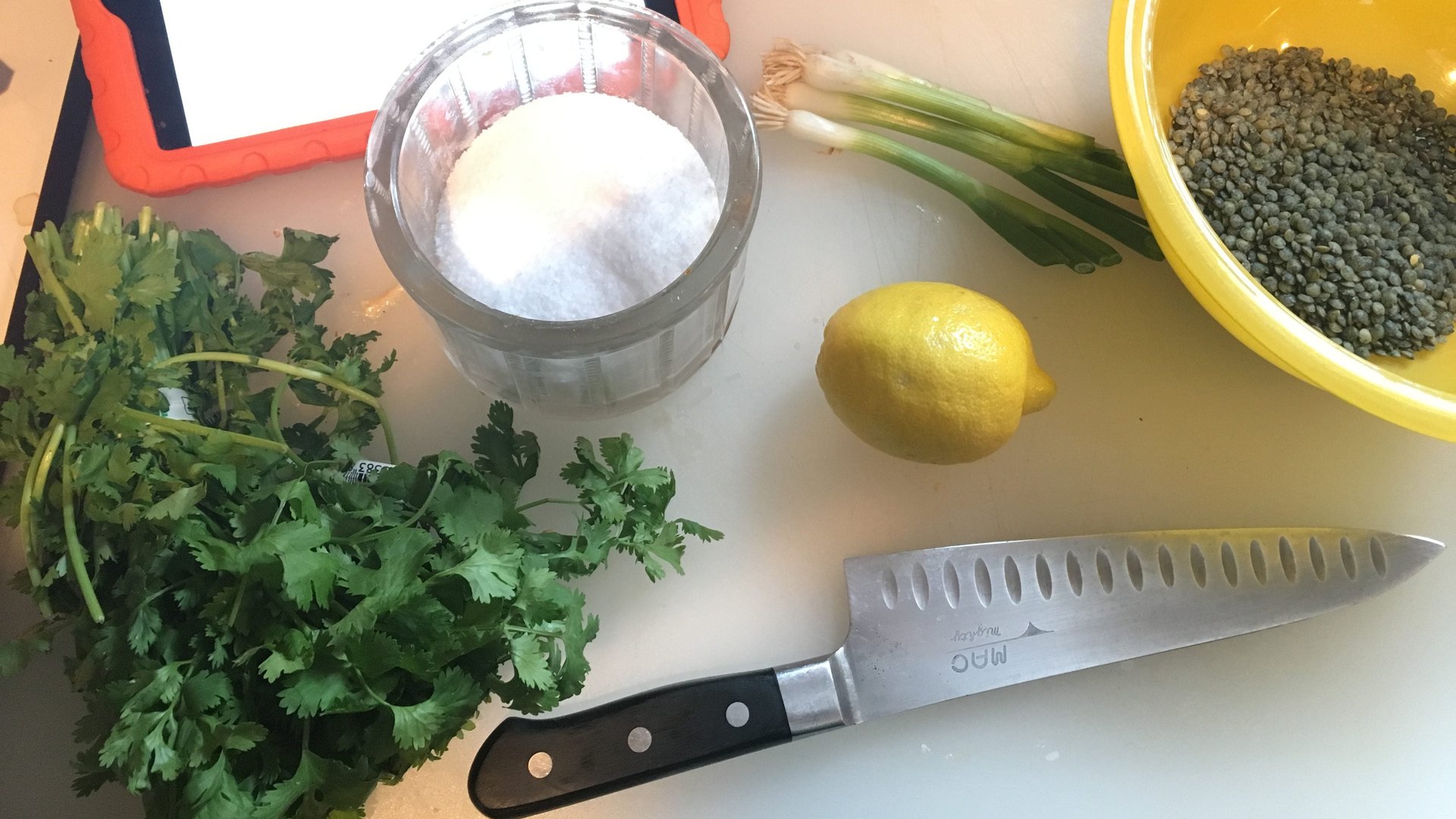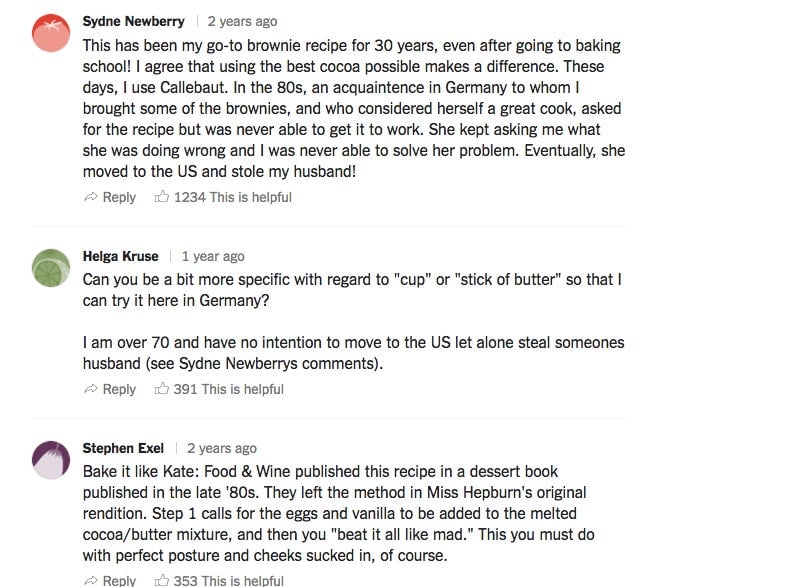The one place on the internet where you should always read the comments
Don’t read the comments. That’s a handy piece of advice for anyone navigating the internet who wants to maintain sanity and some faith in other humans.


Don’t read the comments. That’s a handy piece of advice for anyone navigating the internet who wants to maintain sanity and some faith in other humans.
But there’s one exception: recipes. Before you get out the flour, sugar, and eggs, It’s always worth taking a look at the comments. It’s the best way to get a sense of how well a recipe works when not prepared by a professional cook. It’s also often highly entertaining.
Sites like Genius Kitchen and Epicurious have encouraged online wits to engage in a sort of deadpan, self-referential parody by publishing recipes for ice cubes and for boiling water.
And there was the woman who slipped the story of a stolen husband into a note about which chocolate to use in the New York Times’ Katherine Hepburn Brownies (which, for the record, are my brownies of choice). The Cut followed up with Sydne Newberry, the aggrieved baker, and got the full story on the brownies and the husband. Which really begs the question, what else are you missing if you don’t read recipe comments?
Probably a lot of useful tips that could make your cooking better. But to glean the most from other home cooks online, you should know that there are a few general categories of recipe commenters, some much more helpful than others:
The food-shamer
You’ll rarely find full-blown trolls lurking in the recipe comments, but there is certain type of cook who cannot wait to shame others about their food choices, whether that’s a critique of the amount of sugar, fat, or calories in the recipe. Skip it. You didn’t click on a brownie recipe because you wanted it to be a salad.
The ingredient-swapper
Then there’s the compulsive substituter, the person who swaps in tapioca for white flower, raisins for capers, and birdseed for panko.
Substitution tips can be very helpful, especially if you are missing an ingredient, or if you have a vegan coming over for dinner.
But sometimes the substituter ends up disappointed with the results—or bizarrely proud of a substitution that sounds frankly terrible. This last has become such a common trope that there’s a Twitter bot spoofing the phenomenon, @i_luv_recipes.
The streamliner
Many modern recipes are actually several different smaller recipes that are then combined at the end. Think anything written by Yotam Ottolenghi, whose food is amazingly delicious, and whose recipes can appear heart-stoppingly complex, particularly to an inexperienced cook. (For example a composed salad that requires cooking garlicky chickpeas, making croutons, assembling the fresh vegetables, roasting squash, and whipping up a dressing.) Comments can help you streamline or cut unnecessary steps.
Even simple recipes can sometimes be edited. After reading notes from other cooks on Melissa Clark’s chocolate oatmeal in NYT Cooking, I decided to take their advice and skip a step in her instructions (removing the toasted oats from the pot, then whisking milk and cocoa together, then adding the oats back in). The commenters were right—it worked just fine to combine everything together at once. Next time I’ll probably skip toasting the oats in brown butter, too.
The endorser
At its most basic, recipe commentary can show you that a lot of people liked how a recipe turned out. A slew of “my family loved this” comments is always a good sign.
That chocolate oatmeal, which looks like mud in a bowl when you finish, is nearly impossible to take an appealing picture of—so it was reading what other cooks thought about it that convinced me it was worth making, in the absence of photographic proof of concept. This is a new weekend go-to in my house, healthier than pancakes, but special treat-worthy, too.
The rage-filled non-cook
Enough said.
The collaborative commenter
Probably the most useful type, you’ll find this commenter on the sites that serious cooks and foodies frequent. Food52‘s whole conceit is that it’s a community of home cooks and professionals, all sharing and talking about recipes. The New York Times’ Cooking site has civility and usefulness baked in. Visitors leave recipe “notes” rather than comments, as though they’re annotating a family copy of Joy of Cooking with a suggestion to add a half-cup of chopped walnuts to a favorite bundt cake.
“We felt that asking for ‘notes’ on recipes would lead to a more collegial and fact-based atmosphere than one filled with mere comment and opinion,” editor Sam Sifton told the Times Insider Reader Center column. “That’s worked to a large extent.”
